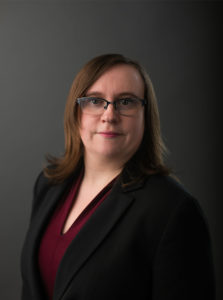Missouri Supreme Court Confirms the Limitations on Qualifying Injuries for Second Injury Fund Benefits
In April, the Missouri Supreme Court and the Missouri Court of Appeals, Western District, issued opinions confirming the limitations imposed for qualifying injuries when an employee seeks benefits from the Second Injury Fund. Mo. Rev. Stat. § 287.220.3 requires employees to meet two conditions to make a compensable claim for benefits against the Second Injury Fund. First, the employee must have at least one qualifying preexisting disability. The qualifying preexisting disability must be medically documented, equal to at least 50 weeks of PPD benefits, and must meet one of four listed criteria:
- The injury is a direct result of active military duty in any branch of the United States Armed Forces;
- The injury is a direct result of a compensable injury as defined in Mo. Rev. Stat. § 287.020;
- The injury is not a compensable injury, but such preexisting disability directly and significantly aggravates or accelerates the subsequent work-related injury and shall not include unrelated preexisting injuries or conditions that do not aggravate or accelerate the subsequent work-related injury; or
- A preexisting permanent partial disability of an extremity, loss of eyesight in one eye, or loss of hearing in one ear, when there is a subsequent compensable work-related injury as set forth in subparagraph (b) of the opposite extremity, loss of eyesight in the other eye, or loss of hearing in the other ear.
Second, the employee must show that they sustained a subsequent compensable work-related injury that, when combined with the preexisting disability, results in permanent total disability.
In the case Christopher Klecka v. Treasurer of Missouri as Custodian of the Second Injury Fund, 2022 WL 1228936, the Missouri Supreme Court upheld a decision from the Labor and Industrial Relations Commission that reversed an award of permanent total disability benefits. The Court found that Mr. Klecka failed to offer sufficient expert opinion to show he was entitled to Fund benefits because the credible expert testimony in the case considered his non-qualifying preexisting disabilities in their PTD analysis. Non-qualifying preexisting disabilities cannot be considered in determining whether an employee satisfies the second condition to receive Fund benefits. Mr. Klecka also failed to elicit testimony that he would still be permanently and totally disabled, absent his non-qualifying disabilities.
In Robert Schebaum v. Treasurer of the State of Missouri-Custodian of the Second Injury Fund, 2022 WL 1009060, the Missouri Court of Appeals, Western District, upheld a decision from the Labor and Industrial Relations Commission affirming an award that denied Mr. Schebaum permanent total disability benefits. The Court noted that while Mr. Schebaum’s 2007 knee injury is a qualifying preexisting disability, his hearing loss is not a qualifying preexisting disability because it did not aggravate or accelerate his left knee injury. The only credible testimony offered by the employee established that he was permanently and totally disabled based on a combination of his two knee injuries and his hearing loss. Thus, the employee failed to establish a compensable claim for permanent total disability benefits against the Second Injury Fund. Moreover, the employee failed to present any evidence that he was permanently and totally disabled due to a combination of the injury to his left knee and non-medical conditions, such as age, work experience and history, education or training.
These rulings make it even more apparent that Employees seeking Second Injury Fund benefits must demonstrate that they have a qualifying preexisting disability, and that the preexisting disability meets the criteria required by statute. The employee must also prove that they suffered a compensable work-related injury, that combined with the qualifying preexisting disability, results in permanent and total disability.
Author: Danielle Sund

If you have any questions about these cases and/or how it impacts matters you are reviewing, please do not hesitate to reach out to our talented attorneys. Sodoro Law Group is a full-service law firm representing the legal needs of clients in Nebraska, Iowa, Kansas, Missouri and South Dakota.
For more information, or to contact the team at Sodoro Law Group, go to https://sodorolaw.com or email Kelsey Sievers at kseivers@sodorolaw.com.